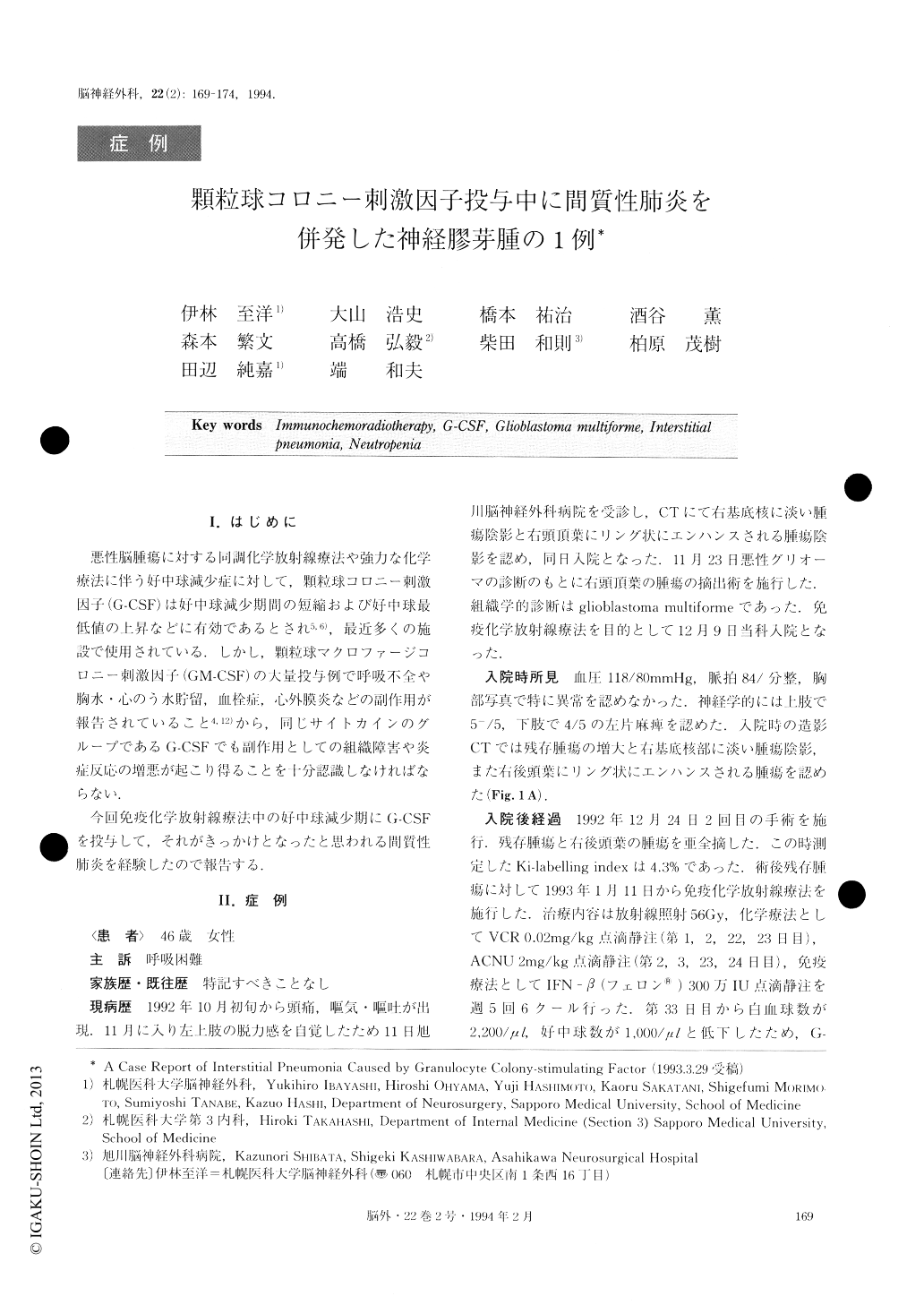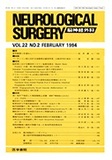Japanese
English
- 有料閲覧
- Abstract 文献概要
- 1ページ目 Look Inside
I.はじめに
悪性脳腫瘍に対する同調化学放射線療法や強力な化学療法に伴う好中球減少症に対して,顆粒球コロニー刺激因子(G-CSF)は好中球減少期用の短縮および好中球最低値の上昇などに有効であるとされ5,6),最近多くの施設で使用されている.しかし,顆粒球マクロファージコロニー刺激因子(GM-CSF)の大量投与例で呼吸不全や胸水・心のう水貯留,血栓症,心外膜炎などの副作用が報告されていること4,12)から,同じサイトカインのグループであるG-CSFでも副作用としての組織障害や炎症反応の増悪が起こり得ることを十分認識しなければならない.
今回免疫化学放射線療法中の好中球減少期にG-CSFを投与して,それがきっかけとなったと思われる間質性肺炎を経験したので報告する.
Several clinical trials have demonstrated that gra-nulocyte colony-stimulating factor (G-CSF) accelerates the recovery of neutropenia in chemotherapy-induced bone marrow suppression.
In this report, we describe a 46-year-old female with glioblastoma multiforme who developed interstitial pneumonia due to administration of G-CSF during the phase of immunochemoradiotherapy-induced neutrope-nia. Thirty-three clays after starting immunochemo-radiotherapy (ACNU, VCR, IFN-β, radiation), she de-veloped neutropenia (1,000/μ) . Administration of G-CSE- at closes of 125-250μg/day led to an increase of peripheral neutrophil counts. Eleven clays later, the pa-tient developed sudden severe respiratory failure and cyanosis with worsening of lung shadows. Blood gas levels on room air were PaO2 49.3mmHg, PaCO2, 28.0mmHg, and pH 7.46. At this time, her neutrophil count had risen to 26,080/ul. LDH and a - HBD had also increased to 1,439 IU/l and 1,117IU/l respectively. Chest radiograph and CT scan demonstrated interstitial pneumonia. After treatment with methyl prednisolone, her respiratory symptoms were gradually resolved. A number of side-effects have been reported with granulocyte-macrophage colony-stimulating factor (GM-CSF). These include fluid retention with pericar-dial and pleural effusion, fever, hone pain, fatigue, and rash. This report also suggests that G-CSF might be a cause of interstitial pneumonia during the phase of im-munochemoradiotherapy-induced neutropenia.

Copyright © 1994, Igaku-Shoin Ltd. All rights reserved.


